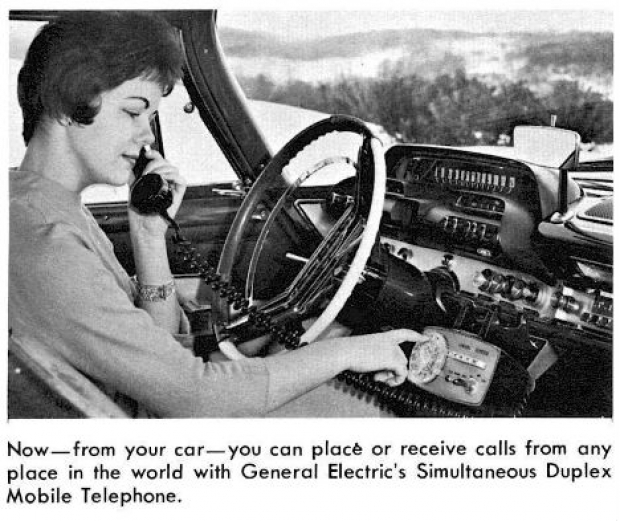According to Reason.com the basic idea of the mobile phone was introduced to the public in 1945 in the Saturday Evening Post.
J.K. Jett, the head of the Federal Communications Commission (FCC) announced that millions of citizens would soon be using "handie-talkies". Licences would have to be issued, but that process "won't be difficult" and the revolutionary technology would be formulated within months.
He appeared to have changed his mind quite quickly and the FCC and the government would not allocate spectrum to realize the engineers' vision of "cellular radio" until 1982, and licences authorising the service would not be fully distributed for another seven years.
Before there were mobiles phones, there was a mobile telephone service, or MTS. This was launched in 1946, but required unwieldy and expensive equipment—the transceiver could fill the trunk of a car. Its networks were so tightly regulated it made it impossible to run.
The largest MTS markets had no more than 44 channels and Bell System's mobile network in New York could host just 545 subscribers. Even at sky-high prices, there were long waiting lists for subscriptions.
Professor Thomas Hazlett of Clemson University has been looking into the history of the wireless spectrum and concluded the technology was known and available for mobiles in the 40s, but was killed off by government over-regulation.
The government assumed that mobiles would always be luxury goods without mass appeal, significant spectrum for divisible cellular networks wasn't legally usable until the early 80s. Instead, the unused spectrum was reserved for the future expansion of broadcast TV to channels 70-83.
"When AT&T wanted to start developing cellular in 1947, the FCC rejected the idea, believing that spectrum could be best used by other services that were not 'convenient or luxury.'
This view -- that this would be a niche service for a tiny user base -- persisted well into the 1980s.
'Land mobile,' the generic category that covered cellular, was far down on the FCC's list of priorities. In 1949, it was assigned just 4.7 percent of the spectrum in the relevant range. Broadcast TV was allotted 59.2 percent, and government users got a-quarter."




